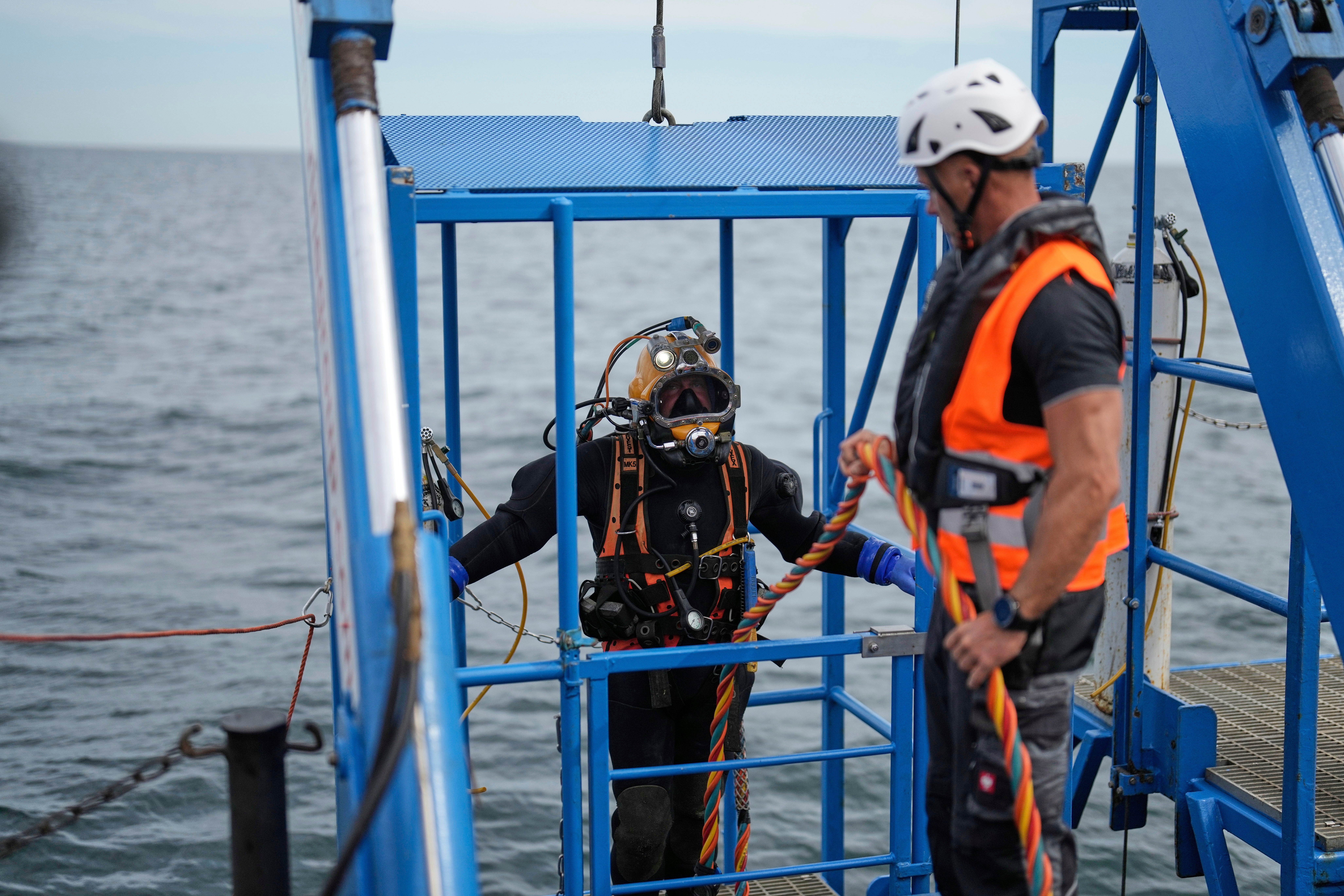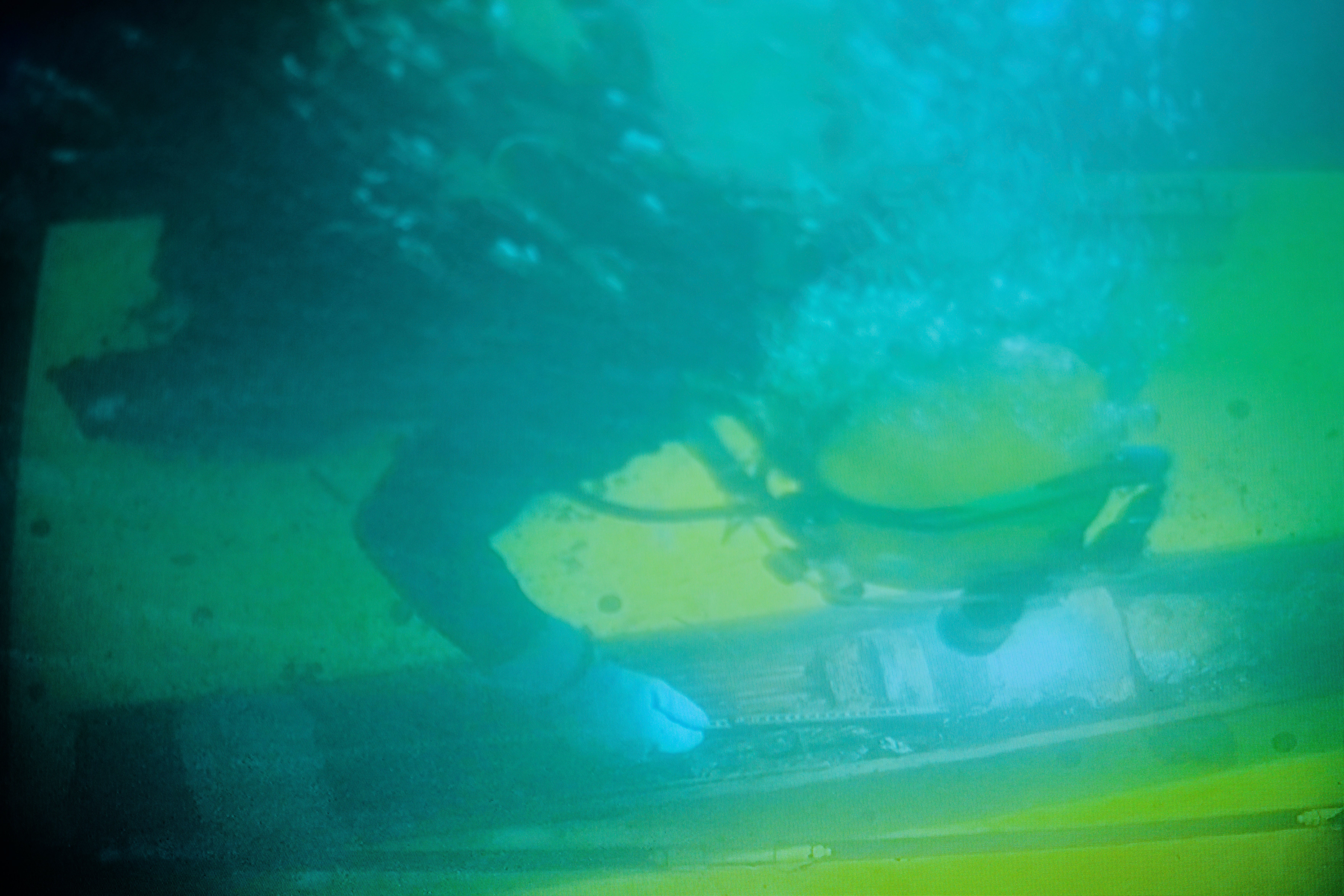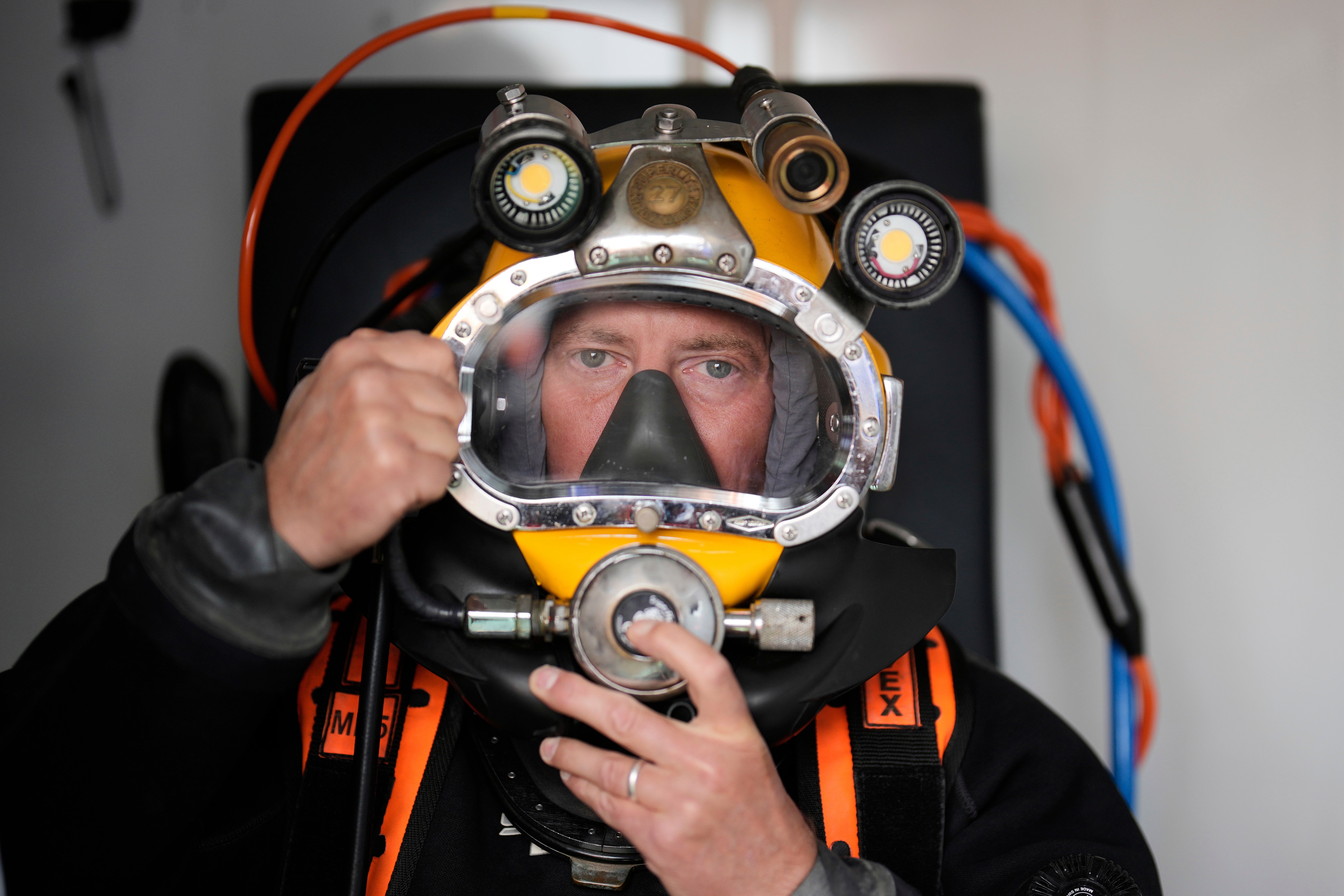Deep beneath the surface of the Baltic Sea, diver Dirk Schoenen meticulously navigates a vast underwater graveyard of World War II ammunition, his every move scrutinised by a team monitoring live video feeds from a camera attached to his head.
Operating 6 kilometres off Boltenhagen on the German coast, Mr Schoenen carefully extracts pieces from a colossal pile of ordnance.
After an hour, he resurfaces on the mobile platform ‘Baltic Lift’, having recovered several 12.8cm shells – some still encased in a broken wooden box – alongside fragments of smaller grenades and 2-centimetre projectiles.
While his haul was significant, it represents a mere fraction of the estimated 1.6 million tonnes of old ammunition littering the seabed of both the North and Baltic Seas.
This immense legacy of conflict poses a considerable and growing danger, as the casings slowly rust, releasing toxic compounds such as TNT into the delicate marine ecosystem.
Europe cleans up the mess of WWII as new conflicts with Russia loom

As tensions between Russia and Nato build up on the Baltic Sea, with near daily incidents involving sabotage of undersea cables, Nato fighter planes scrambling to push Russia military planes away, and hostile drones from the East invading western airspace, Europeans are still busy cleaning up the mess that World War II — and to a smaller extend World War I — left behind in the ocean.
Most of the ammunition was deliberately sunk in the ocean after the war because the Allies were concerned that Germans would resume hostilities against them again at some point, and ordered that Germany destroy all ordnance. At the time, the easiest way to do so seemed to be to simply dump everything into the sea.
Trains from all over Germany were sent to the coasts in 1946, and fishermen were commissioned to take the material to designated disposal areas in the Baltic and North Seas.
Often, however, they also threw the ammunition elsewhere into the ocean, and strong currents, especially in the North Sea, have spread the ordnance all over the seafloor.
In an effort to clean up the seabed from the remains of war, the German government has given 100 million euros ($117.4 million) to teams of divers to study how to best recover the ammunition, and to engineers to come up with long-term plans on how to rid the oceans of it.
The current four-week pilot project started last month on the Baltic Lift platform — a self-propelled crane barge temporarily moored off Boltenhagen because experts had discovered a large field with around 900 tons of old ammunition there.
Two teams of divers are working in 12-hour shifts around the clock. It’s too dangerous to bring the rotting pieces up on the platform, so they are initially sorted and stored in baskets under water until a special ship takes them ashore.
Only then are they taken to facilities specialising in disposing old ammunition.
Risks of spontaneous explosions and contamination

“This isn’t a routine job,” said Schoenen, 60, who has been diving since 1986 and volunteered for the Baltic Taucher diving team.
“The challenge, of course, is that you never know what you’re going to get,” he said as he stripped out of his diving gear, including three pairs of gloves to ensure his skin did not come into direct contact with the ammunition.
“Most of these things can be handled, but you mustn’t neglect caution and just randomly hit something or throw something away.”
The rotting ammunition isn’t just contaminating the water — it can also explode as the detonators of sea mines and unexploded aerial bombs become increasingly sensitive over time. That is a rare occurrence.
Even worse, the 80-year-old ammunition is also starting to poison the marine environment: decaying fragments of TNT explosives, which are considered carcinogenic, have been discovered in the water close to old ammunition lying on the seabed.
Substances derived from the explosives have been found to accumulate in marine life such as mussels and fish, according to the German environment ministry which is spearheading the clean-up efforts.
While the levels of toxic substances detected were well below safety thresholds for drinking water or for marine organisms, in some cases “concentrations approached critical levels,” the GEOMAR Helmholtz Centre for Ocean Research Kiel said in a study published in February.
The research institute highlighted “the urgent need for munitions clearance to minimise long-term risks.”
The problem is especially pressing in the Baltic Sea because of the narrow channel connecting it to the nearby North Sea and the Atlantic, which means the polluted water doesn’t circulate out of the area for decades, according to the German environment ministry.
Other countries are dealing with similar problems

The government project doesn’t just focus on cleaning the sea floor. The long-term goal is to find safe ways to recover and immediately destroy the ammunition, ideally by automated means without the help of human divers, and by burning the toxic material on a floating industrial plant at sea.
The current project and three related government-sponsored projects last year that used underwater robots to screen the seafloor will help determine how such offshore facilities should be designed, said Volker Hesse, a marine engineer coordinating the program.
Hesse stressed that the findings are not just important for Germany but also of great interest to other countries because old ammunition sunk in the sea is a growing problem around the world.
He noted that the Black Sea is also facing the problem of contamination by ammunition from Russia’s war on Ukraine.
“This is definitely a global problem — one only has to think of the crises in Vietnam or Cambodia, but also here locally in the neighboring countries, the Baltic Sea, Denmark, Poland,” he said.




